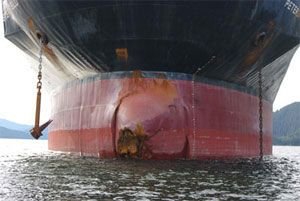And airliners are not a good analogy. A turbofan engine is about as complex as a turbine driven feedpump, and has maintenance standing by after a 12hr run if anything acts up.
Having spent the last 36+ years living and working with airliners and airlines all over the planet I can tell you that the modern high-bypass turbofan is amazingly attention-free and is usually the one thing on the plane the maintenance folks don't have to worry about.
I have directed shoots of thousands of airplane turnarounds all over the world, from 727s at Fedex on up to Emirates' huge 777 fleet (haven't done any 787s yet, though). The plane comes in, people and cargo get off, the plane is fueled, people and cargo get on, and the plane leaves. That's it. A line guy checks the oil in the engines and adds some if needed and that's all the attention that engine needs.
Sure, there are maintenance folks on-site at the major airports. But unless something actually breaks--- very, very rare on the current generation of turbofans--- they are not needed. At least not for the engines.
More often than not what they're needed for is to fix the bloody IFE system (in-flight entertainment) which most people do not know is the single most complex (and hated) system on a modern jetliner.
And equipment is improving in reliability all the time, even the IFE systems.

Potential breakdowns are taken care of on an airliner with redundancy. No reason (except economics) not to apply the same principle to ships.
The bottom line is that humans are expensive, not only in the fact they have to be paid, but even moreso in the fact that when they screw up, either in the air or on the ocean, the financial penalties can be staggering.
As component reliability continues to improve, and sensors and data input systems become more and more comprehensive, and airspace/oceanspace control systems become comprehensive, coordinated and reliable, the point will come when operating a plane or ship under full autonomous control will be less expensive than operating it with humans.
Because humans will always be accident prone. That's what things that are "alive" do, be it an ant, a squirrel or a human. They screw up.
Machines only screw up when they aren't developed to the point where they can't screw up or there are other machines that automatically take over.
But once that point is reached, you get results like the BMW assembly plant in Greenville, SC turning out 1,200 X-cars
a day according to the CEO of the plant who gave me that figure a few years go, to supply half the world's demand for BMW X-cars. (The other half come from a plant in Germany). The SC plant can do this because it is almost fully automated.
You're absolutely correct, Ski, in that we're still a long, long way from fully automated operations in aviation and shipping, although at the continuously accelerating rate of technology development it may not be as long a way as we think. But the day
will come because there is no reason that it can't.
The thing humans bring to the table--and will
always bring to the table-- is vision. The vision to conceive an idea, the vision to figure out how to make the idea a reality, and the vision to actually make the idea work. In that respect, there will always be humans involved in air and ocean transportation because there will always be ways to improve it. But there is no reason that humans have to keep driving the machines.
They have to
now, but they won't have to in the future.


 but that never stopped a thread from reaching astronomical heights of ludicrousness.
but that never stopped a thread from reaching astronomical heights of ludicrousness.